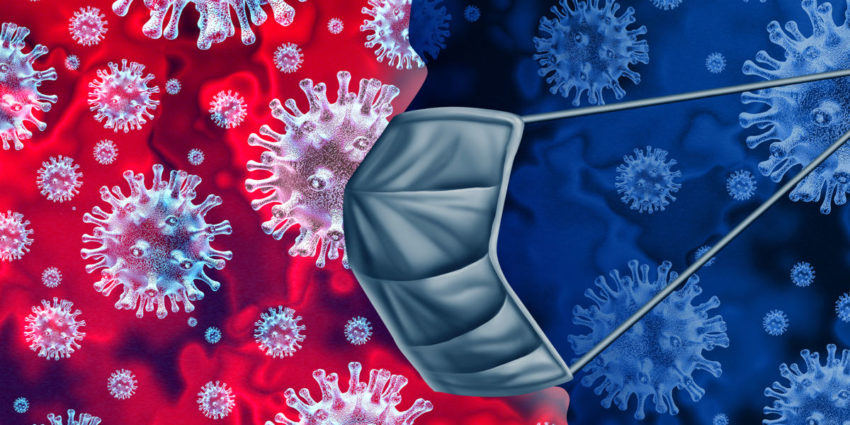The immune system response to a viral infection, such as COVID-19, is very similar to how the body fights cancer. As my book Cancer: Improving Your Odds points out, a strong microbiome, and certain probiotics, are vitally important to a properly functioning immune system. The book outlines several very recent studies (from prestigious research facilities such as the MD Anderson Cancer Center) that show a good microbiome (and especially a strong showing from bifidobacterium) can greatly improve someone’s odds of beating cancer (especially, but not limited to, those taking certain immunotherapy drugs). They have shown that the reason for this is the gut’s ability improve and train the immune system; the exact same functions that are vital for protecting us from viral infections. This is done through immunomodulation by the beneficial bacteria in our gut.
This experiment resulted in Bifidobacterium-treated mice having significantly improved tumor control as compared to mice that did not receive Bifidobacterium. Sivan et al. also showed that the possible mechanisms by which Bifidobacterium species inhibited tumor growth were through activating DCs (dendritic cells), which in turn, improves the effector function of tumor-specific CD8+ T cells. Given that the enhanced anti-melanoma effect from Bifidobacterium species had occurred at the innate immunity level, the authors anticipated that Bifidobacterium species also provide anti-tumor beneficial effects to other types of tumors. – PubMed ID#PMC5845387 (2018)
In this study from March 6th, 2020 (out of Wuhan University in China) it was shown that there is a strong link to a person’s ability to survive and beat COVID-19 and the status of their microbiome. Especially the levels of bifidobacterium and lactobacillus.
“The balance between virus and host immunity is closely associated with the outcome of an infection. Clinical studies have shown that coronavirus infection severity was linked to patient health status and an immunocompromised state carried an increased risk of death… Laboratory findings show that C-reactive protein (CRP) were obviously increased in all patients, and decreased lymphocyte counts… Laboratory findings show that C-reactive protein (CRP) were obviously increased in all patients, and decreased lymphocyte counts… in these critical patients with COVID-2019, we found that the lower immune cell levels, the more serious hypoxia, which suggested that the imbalance between host immunity and coronavirus would lead to worse clinical outcome… Multiple studies have demonstrated the interaction between immune system and gut microbiota, and gut microbiota homeostasis is modulated by the immune system… gut microbiota was able to modulate the immune response and played an important role in immune-mediated diseases… the proportion of probiotics was significantly reduced, such as Bifidobacterium, Lactobacillus, and Eubacterium, and the proportion of conditioned pathogenic bacteria was significantly increased… Based on our findings, we suggested that the early interventions of host immune system and gut microbiota are necessary for COVID-2019 patients… Hypoxemia severity was closely related with host immune cell levels, and the vicious circle between immune disorder and gut microbiota imbalance may be a high risk of fatal pneumonia.” — Department of Internal Medicine, Renmin Hospital of Wuhan University (March 2020)
Prior to COVID-19 a study out of Yeungnam University in Korea showed that Kimchi (a spicy fermented cabbage popular in Korea) has the ability to treat viral coronaviruses. This study was conducted in 2015, prior to COVID-19 (but should still be applicable). Kimchi contains both lactobacillus and bifidobacterium probiotic strains.
This is just a sampling of the now overwhelming amount of evidence showing that a healthy microbiome is vital for a strong immune system response to a viral infection (and to cancer). Consuming fermented vegetables, such as kimchi, can help with this but taking a good probiotic containing bifidobacterium strains is also important. Making sure that this bacteria proliferates throughout the colon is also important (most probiotics die before reaching the end of the colon), and this is what a phage complex will do.
| These statements have not been evaluated by the Food and Drug Administration. Products mentioned are not intended to diagnose, treat, cure, or prevent any disease. |

